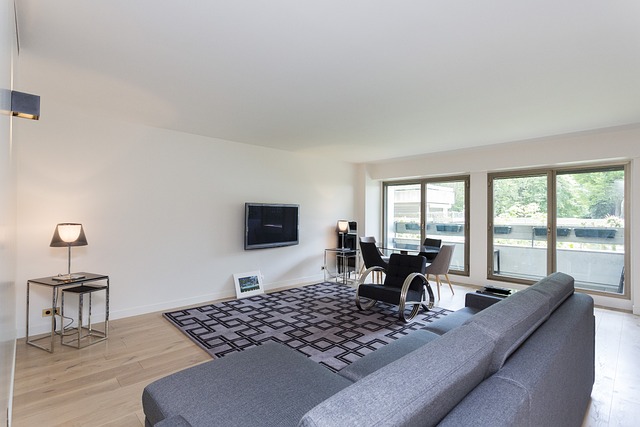Executive Condominiums (ECs) in Singapore represent a unique segment of the real estate market, with rental costs influenced by eligibility based on Housing & Development Board (HDB) income ceilings, location desirability affecting premium pricing, and market dynamics shaped by supply and demand. Factors such as new project launches, economic conditions, government policies on loans and eligibility criteria, and the condition of the estate all play a role in determining rental rates for ECs. With prices recently surpassing $300,000 and expected to rise at a moderated pace, it's crucial for prospective tenants and investors to consider these elements to navigate the market effectively. The Cost Of Executive Condos In Singapore is on an upward trajectory, with strategic planning and policy adjustments necessary to balance affordability and market stability. Stakeholders should monitor new EC projects in choice locations to understand ongoing pricing trends within this vibrant sector of Singapore's property landscape.
Exploring the nuances of Singapore’s property market, this article sheds light on the dynamic landscape of Executive Condominium (EC) rentals. With a focus on the “Cost of Executive Condo in Singapore,” we delve into the factors influencing rental prices and analyze current trends to forecast future projections. Understanding the intricacies of this niche market segment is crucial for investors, homeowners, and renters alike, as it offers insights into the economic and demographic drivers shaping housing affordability in this vibrant city-state. Join us as we navigate the complexities of Singapore’s EC rental market and its implications for residents and real estate stakeholders.
- Understanding the Executive Condo (EC) Rental Market in Singapore: Factors Influencing the Cost of ECs
- Analyzing Current Trends and Future Projections: The Cost of Executive Condos in Singapore's Real Estate Landscape
Understanding the Executive Condo (EC) Rental Market in Singapore: Factors Influencing the Cost of ECs

The Executive Condominium (EC) rental market in Singapore presents a unique segment within the city-state’s real estate landscape, influenced by a multitude of factors that shape the cost of ECs. Prospective tenants and investors must consider the Housing & Development Board (HDB) income ceilings as one of the primary determinants of eligibility and rental costs, as ECs are hybrid properties designed for Singaporeans who aspire to upgrade from HDB flats without the waiting period associated with private condominiums. The location of these units is another significant factor; desirable districts with ample amenities, accessibility to public transportation, and proximity to reputable schools can drive up rental prices due to higher demand.
Furthermore, the supply and demand dynamics in the EC market are pivotal in influencing costs. New project launches, completion of construction for existing projects, and the overall state of the economy all impact availability and affordability. Government policies, such as loan interest rate fluctuations and changes to eligibility criteria for purchasing ECs, can also lead to shifts in the rental market. Additionally, the maturity of the estate, age-related maintenance needs, and the introduction of new amenities or upgrades within the development can affect desirability and, consequently, rental rates. Understanding these interplaying factors is crucial for anyone looking to navigate the EC rental market in Singapore, aiming to make informed decisions regarding leasing or investing in an Executive Condo.
Analyzing Current Trends and Future Projections: The Cost of Executive Condos in Singapore's Real Estate Landscape

The cost of an Executive Condominium (EC) in Singapore has been a subject of considerable interest and analysis, reflecting the dynamic nature of the city-state’s real estate market. Recent trends indicate a gradual increase in the pricing of ECs, a trend that is projected to continue amidst limited supply and consistent demand from both upgraders and investors. The prices have been influenced by various factors, including the economic climate, population growth, and government policies aimed at balancing the housing needs of different income groups. As of the latest data, the average cost of an EC in Singapore has surpassed the $300,000 mark, with new launches often fetching higher prices due to their desirability and limited availability.
Looking ahead, future projections suggest that the cost of ECs will likely continue its upward trajectory, albeit at a more subdued pace. This anticipation is based on the government’s strategic planning and policy adjustments to ensure affordability for first-time homeowners while maintaining market stability. The introduction of new EC projects in sought-after locations and with attractive features is expected to sustain demand, further influencing pricing trends. Investors and potential buyers should monitor these developments closely, as the cost of ECs will remain a significant factor in their decision-making process within Singapore’s real estate landscape. Keywords: Cost Of Executive Condo In Singapore, EC pricing trends, real estate market dynamics, government housing policies, future projections for EC prices.
Singapore’s Executive Condominium (EC) rental market presents a dynamic and evolving landscape for both investors and tenants alike. The cost of an EC in Singapore is influenced by several factors, including location, property age, and market demand, as detailed in the article. Analyzing current trends and future projections underscores the importance of understanding these drivers to make informed decisions within this niche real estate sector. As it stands, the cost of an Executive Condo in Singapore remains a significant consideration for potential renters and property investors. Prospective tenants and investors should stay abreast of market developments to navigate this space effectively. The insights provided highlight the necessity for continuous monitoring of the EC rental market to capitalize on its opportunities and challenges.
